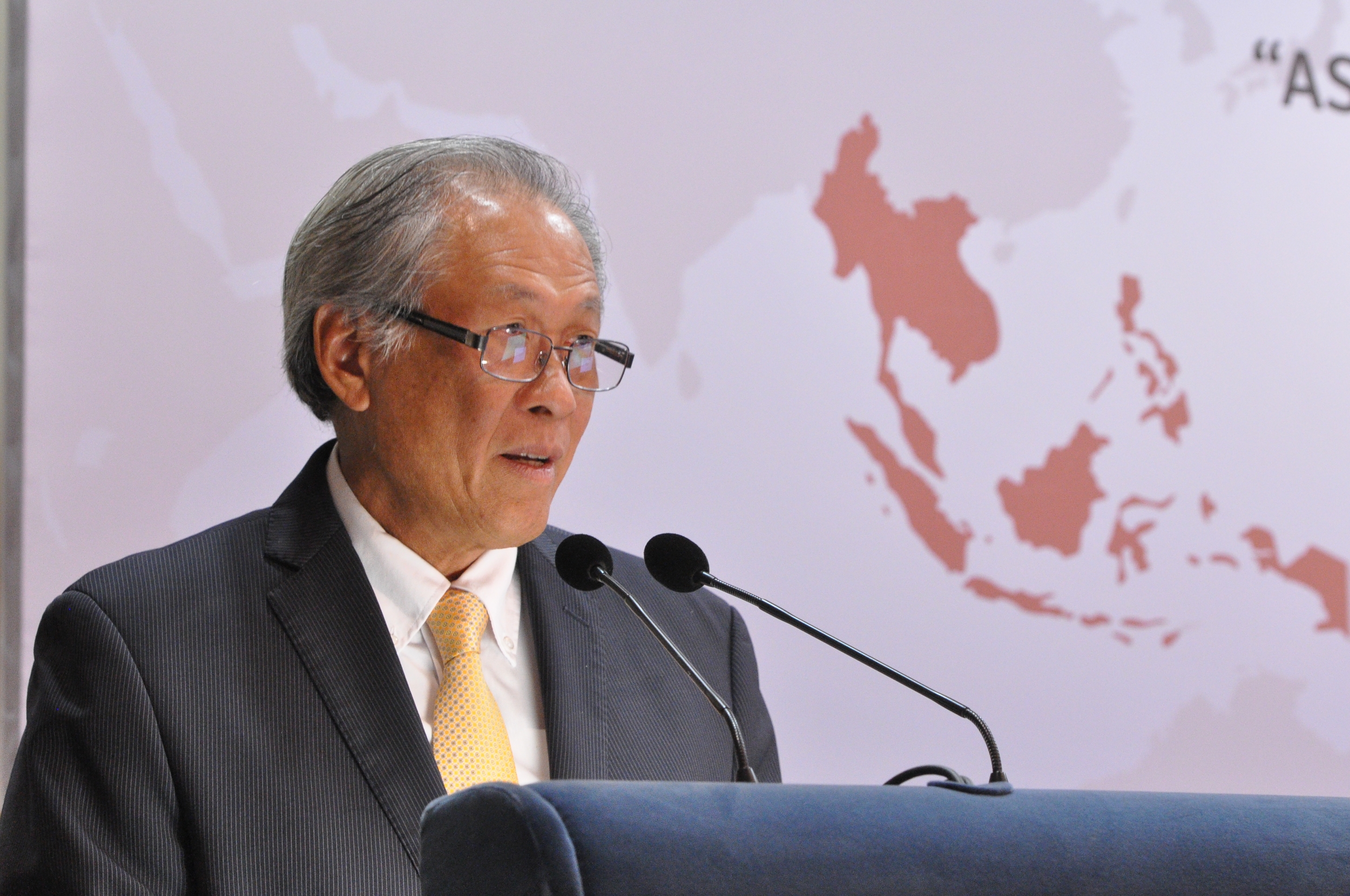ASEAN centrality is a position that larger powers support as it helps contribute to peace and security development in the region, said Defence Minister Ng Eng Hen on Monday, August 6.
Ng gave the keynote address at the 20th Asia Pacific Programme for Senior Military Officers (APPSMO 2018) , an annual event which allows senior military officers from around 20 countries to meet and exchange knowledge of military and security developments.
While some analysts have cast doubt on the clarity of the term, ASEAN centrality is essentially the idea that ASEAN lies at the core of regional organisations in the Asia-Pacific and that its leadership allows the grouping to exercise influence in regional processes.
Major powers support ASEAN centrality
Ng noted that major powers such as the US, China and India have professed support for "ASEAN centrality" for the following reasons:
1) The alternatives would be worse
"All countries understand that tensions would rise, if any large or even middle powers asserted themselves to change the status quo to gain central dominance."
2) ASEAN member states sit astride two key maritime domains
"... the South China Sea and the Straits of Malacca which are vital to global trade – which account for the passage of more than USD 5 trillion of global trade."
3) ASEAN's values provide assurance to larger powers
The core principles of ASEAN as encoded in its enshrined Treaty of Amity and Cooperation in Southeast Asia (TAC) and the Zone of Peace, Freedom and Neutrality (ZOPFAN) are:
- Mutual respect for the independence, sovereignty and national identity of all nations.
- The right of every state to lead its national existence free from external interference, subversion, or coercion.
- Non-interference in the internal affairs of other states.
[related_story]
What ASEAN must do to maintain centrality
Ng then gave his insight on what ASEAN must do to maintain this "central position" today.
1. Take no sides
He first stressed the importance for ASEAN to remain "neutral, inclusive and open" in order to strengthen its centrality, adding that ASEAN's centrality is not by virtue of its economy or military power:
"If ASEAN member states begin to take sides, assert or close itself to the international community, then its centrality would weaken."
2. Promote free trade
Ng said that ASEAN should reject protectionist trade policies and help prevent trade wars. He cited the Regional Comprehensive Economic Partnership (RCEP) as an example of ASEAN's commitment to free trade.
3. ASEAN and China should quickly conclude the COC
Ng said both ASEAN and China have to "quickly conclude the Code of Conduct in the South China Sea", in order to minimise disputes and prevent disruption of maritime trade.
He reiterated the importance of the United Nations Convention of the Law on the Sea (UNCLOS) in providing the legal framework for rights of navigation and resource claims.
Foreign Minister Vivian Balakrishnan said on August 2, that ASEAN and China have agreed on a single text to negotiate the Code of Conduct in the South China Sea.
4. ASEAN should step up connectivity among its members and with the world
Ng said ASEAN's air traffic growth outpaced the world's average, but conditions for continued growth must be maintained.
He cited Singapore's subscription to the Code for Unplanned Encounters at Sea for the maritime domain, and facilitating a Code for Unplanned Encounters for the air as ASEAN Chair this year.
Something like the 2017 Qatar diplomatic row "should never happen" to ASEAN.
5. ASEAN should deal with security threats
Ng also warned that ASEAN must be alert against security threats, like terrorism.
Disputes must be dealt with through peaceful settlement, citing the Thai-Cambodian border dispute as an example.
As for humanitarian crises, like the Rakhine community on the borders of Myanmar and Bangladesh, there could be "pernicious effects" if not dealt with quickly.
ASEAN holds much promise
Ng concluded his speech by saying should ASEAN maintain its centrality and continue to grow, its promise is great.
By 2040, ASEAN can look forward to the following:
- A population close to 10 per cent of the world's current population today, but with a younger median age.
- An economy the size of the combined Japanese and German economies today.
- Sustainable development efforts comparable to the Scandinavian countries.
Top image via RSIS
If you like what you read, follow us on Facebook, Instagram, Twitter and Telegram to get the latest updates.
